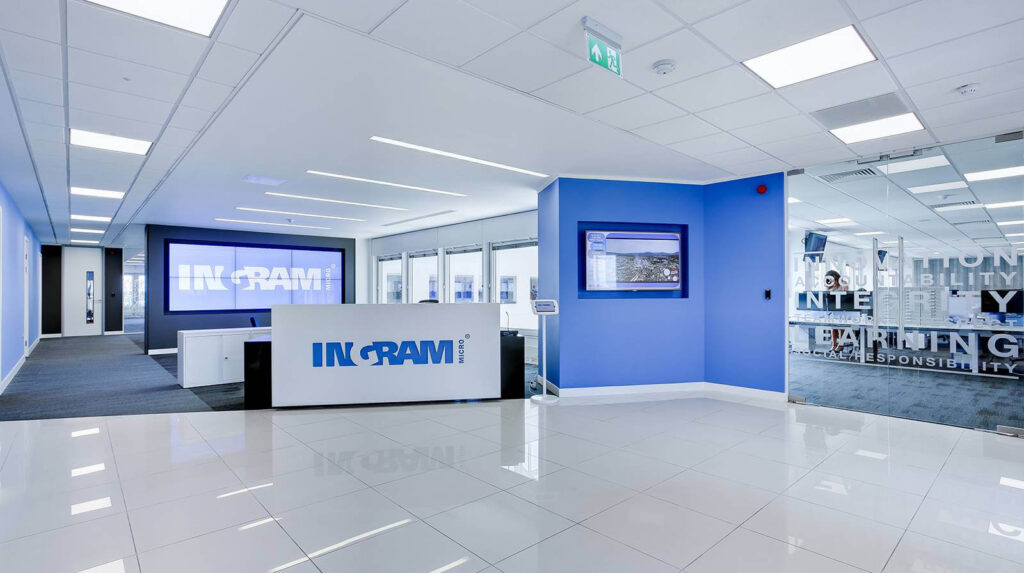Trading at Ingram Micro’ is “returning to more expected levels” following its ransomware attack, its CFO said tonight after the distributor smashed sales expectations for its second quarter.
The $48bn-revenue juggernaut today unveiled a 10.9% year-on-year hike in Q2 sales, as it also confirmed it plans to close the sale of its CloudBlue operations – as well as “certain non-core operations” in North America – in Q3.
In an acknowledgement that it may suffer from a “potential loss of business” in the wake of its early July ransomware attack, the NYSE-listed broadliner has reined in its guidance for Q3, however.
It now expects sales to hit between $11.8bn and $12.38bn in its current quarter, a more conservative 3% rise at the midpoint.
“I can say quite positively that we’ve seen good indicators of business returning to more expected levels since bringing our systems back online,” Ingram CFO Mike Zilis said on an earnings call.
“The timing of the incident over a long US holiday weekend and in the early days of a new month and quarter, coupled with the speed of our response to get the majority of our go-to-market systems back up and running in a matter of days, may have limited the impact on our financial results.
“But even if minimised, there is still an impact from the days we were unable to transact which we are still working to quantify.”
Growth hits 11%
Ingram saw revenues bounce 10.9% year on year to $12.8bn in its Q2 ending 28 June – well above its guidance range of $11.8bn to $12.2bn.
Gross profit fell from $839m to $828m, however, as growth among higher-margin SMB customers remained “more muted” than large enterprises (one-off costs associated with its non-core divestitures also weighed on margins), Zilis said.

EMEA sales rose 4.8% to $3.5bn in dollar terms, but were roughly flat in constant currency.
“Strong double digit” cloud growth in the region was offset by “flat client and endpoint solutions and a low-digit declines in advanced solutions”, Zilis revealed.
CloudBlue was part of the “initial foundations” of Ingram’s $600m investment in building a cloud marketplace, CEO Paul Bay (pictured top) acknowledged on the call.
“We have retained the relevant IP from it,” Bay emphasised.
Xvantage’s “third phase”
Building on a recent Xvantage run-through by President Global Platform Group, Sanjib Sahoo, Bay said Ingram has its sights set on “phase three” of its Xvantage rollout – which he claimed is enabling the distributor to evolve into a “platform company”.
“We think about this evolution for Ingram Micro and the subsequent transformation of our customers’ journey in three phases,” he said.
“The first phase, which we already delivering upon, is to remove friction to streamline operations and drive Opex efficiencies.
“The second phase, which we’re in the process of rolling out, leverages AI to automate and optimise demand signals, enabling more proactive go-to-market strategies and accelerating top-line growth.
“The third phase will unlock greater value for our customers and our vendor partners by matching supply and demand more intelligently, using data to drive growth and further enhance margins and operating leverage. It is during this phase that we expect to fully realise a flywheel network effect.
“Although this takes time, we continue to grow and remain profitable as we move through these phases.”
“Certain data exfiltrated”
Ingram Micro hasn’t issued an update on its dedicated cyber-attack blog since reports emerged that the SafePay ransomware gang is allegedly threatening to leak Ingram data allegedly stolen in the attack.
On the call, Bay acknowledged that “certain data was exfiltrated from our systems”.
“Should we determine that personal information was affected, we will provide notification based on relevant regulations,” he added.
Bay said he was “incredibly grateful for the outpouring of support” Ingram received from its customers and partners in the wake of the attack.
“Some uncertainty remains” regarding the incident’s impact on Ingram’s business, he acknowledged.
“While no company wants to face the increasing reality of such an attack, our response reflects the way we do business of a platform company,” he said.














